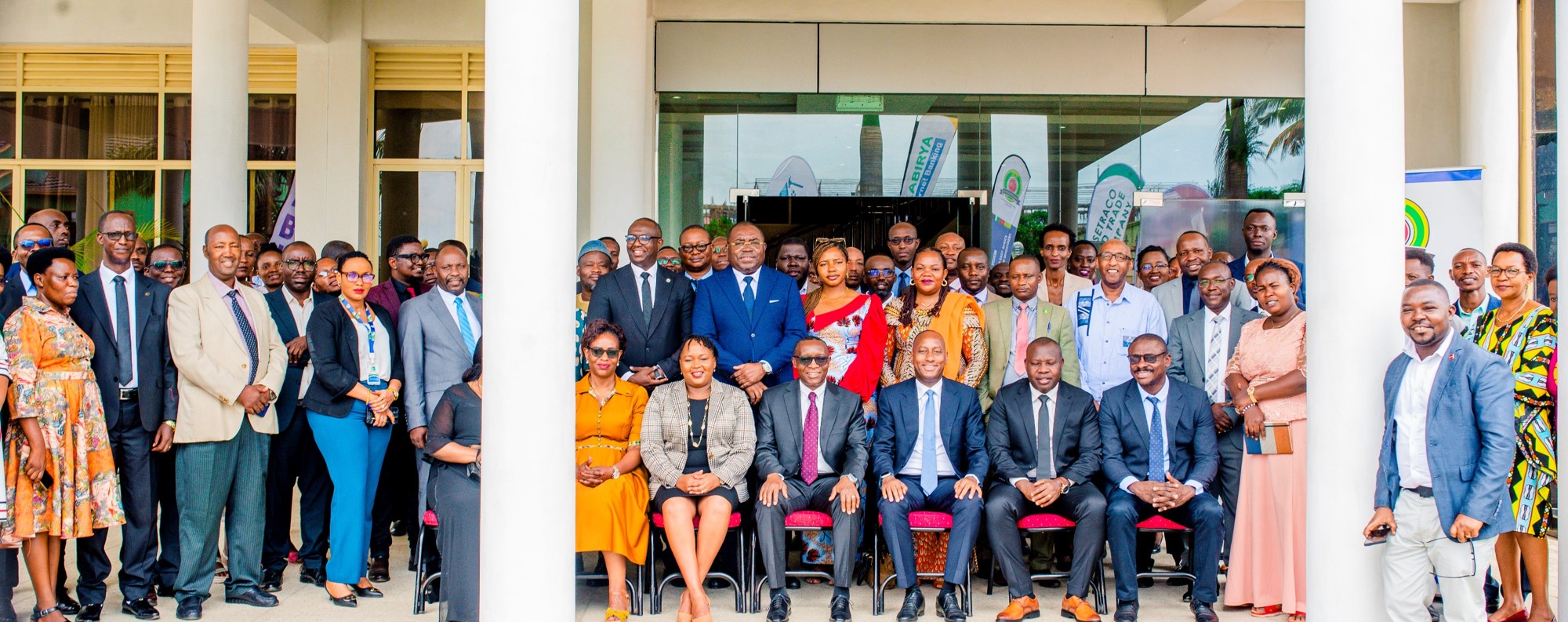- EABC CEOs – EAC Secretary General Meeting in Burundi Charts Policy Proposals to Boost Intra-EAC Trade and Investment
Bujumbura, Burundi – Friday, 21st November 2025: Speaking during the EABC CEOs – EAC Secretary General Meeting, Burundi Edition, organized by the East African Business Council (EABC) in partnership with the East African Community, Burundi Federal Chamber of Commerce and Industry (CFCIB), Burundi Manufacturers Association (AIB), and GIZ, H.E. Amb. Dr. Edouard Bizimana, Minister for Foreign Affairs, Regional Integration, and Development Cooperation – Republic of Burundi, stated: “Under the visionary leadership of His Excellency President Évariste Ndayishimiye, Burundi has undertaken bold reforms to strengthen the business environment, deepen regional integration, and promote investment across the East African Community.”
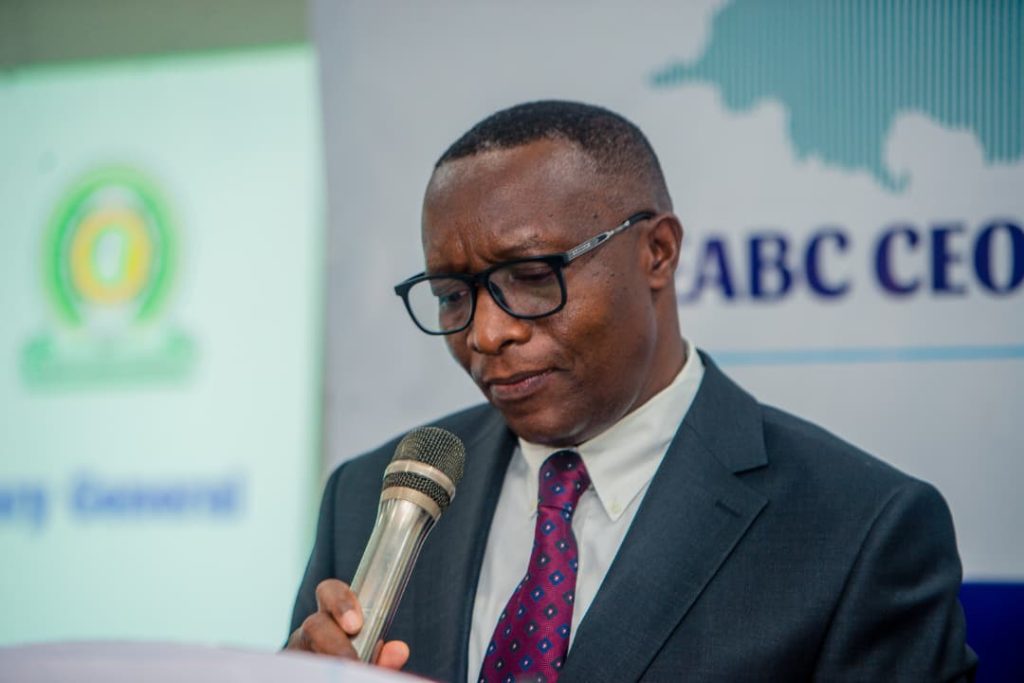 He added: “The EAC has made significant progress through the Customs Union, Common Market, and steps toward a Monetary Union, but we must find solutions to challenges such as non-tariff barriers, restrictions on trade in services, inconsistent application of the Common External Tariff, and gaps in transport and logistics infrastructure.”
He added: “The EAC has made significant progress through the Customs Union, Common Market, and steps toward a Monetary Union, but we must find solutions to challenges such as non-tariff barriers, restrictions on trade in services, inconsistent application of the Common External Tariff, and gaps in transport and logistics infrastructure.”
“We must prioritize joint infrastructure investments, strengthen regional value chains, and advance the ‘Buy East African, Build East Africa’ campaign to unlock the full potential of our regional market.”
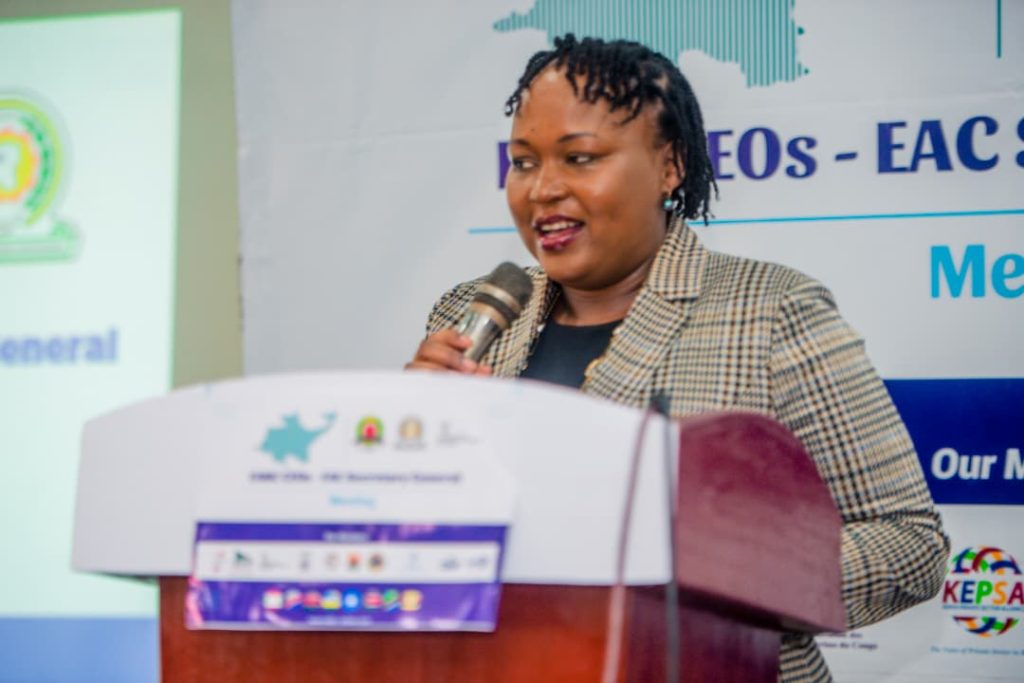 In her remarks, H.E. Veronica Nduva, Secretary General, East African Community (EAC), commended Burundi’s private sector for showcasing innovative products at the 25th EAC MSME Trade Fair, fostering entrepreneurial spirit, talent, and engagement in regional value chains. She highlighted the challenges affecting Burundi’s trade, including delays at Kobero–Kabanga, high transport and logistics costs, non-uniform application of standards, limited trade finance for MSMEs, and slow cargo movement due to inadequate sealing and monitoring capacity.
In her remarks, H.E. Veronica Nduva, Secretary General, East African Community (EAC), commended Burundi’s private sector for showcasing innovative products at the 25th EAC MSME Trade Fair, fostering entrepreneurial spirit, talent, and engagement in regional value chains. She highlighted the challenges affecting Burundi’s trade, including delays at Kobero–Kabanga, high transport and logistics costs, non-uniform application of standards, limited trade finance for MSMEs, and slow cargo movement due to inadequate sealing and monitoring capacity.
“The EAC Secretariat is working closely with Partner States to address these challenges by upgrading border posts, improving cargo security through the EAC Regional Bond and electronic tracking systems, harmonizing road user charges, and ensuring consistent application of the Common Market Protocol. We encourage Burundian traders to take full advantage of these initiatives,” she said.
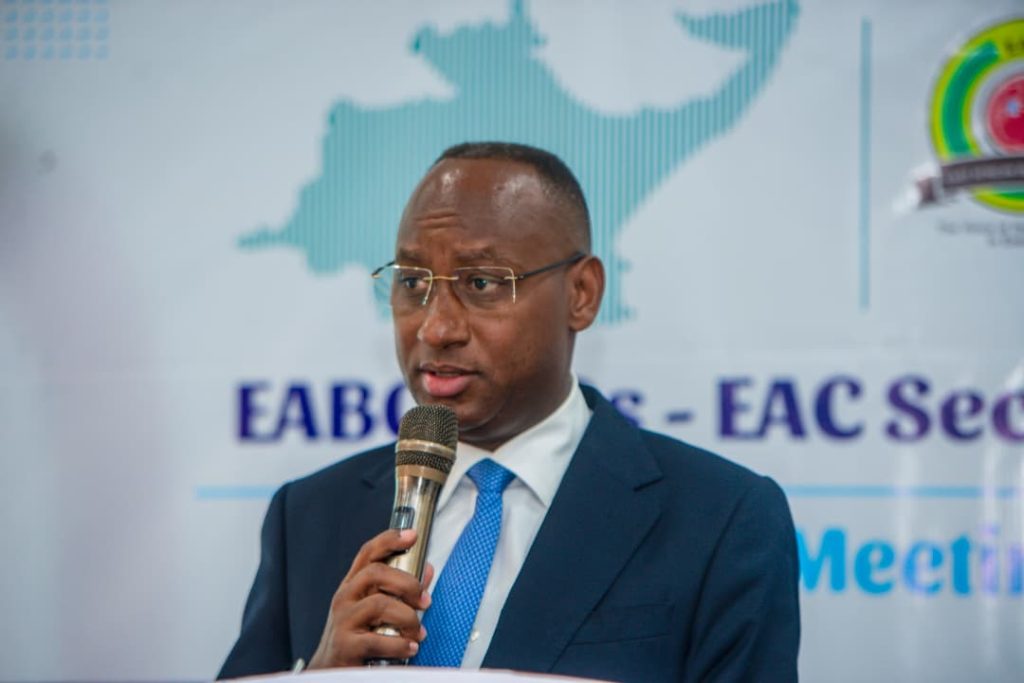 In his remarks, Hon. Olivier Suguru (MP), Chairperson of CFCIB and Vice Chairperson of EABC, expressed appreciation to GIZ for partnering with EABC and the EAC Secretariat in convening the EABC–EAC Consultative Meetings and the EABC CEOs – EAC Secretary General Meetings across EAC Partner States, which have been central in addressing policy constraints that hinder businesses from fully benefiting from the EAC Customs Union and Common Market Protocols.
In his remarks, Hon. Olivier Suguru (MP), Chairperson of CFCIB and Vice Chairperson of EABC, expressed appreciation to GIZ for partnering with EABC and the EAC Secretariat in convening the EABC–EAC Consultative Meetings and the EABC CEOs – EAC Secretary General Meetings across EAC Partner States, which have been central in addressing policy constraints that hinder businesses from fully benefiting from the EAC Customs Union and Common Market Protocols.
He called for the liberalization of air transport services within the EAC and the implementation of the EAC Single Customs Territory, including initiatives such as geomapping of the Horohoro/Lunga Lunga border post to reduce transport costs for Burundi as a landlinked country.
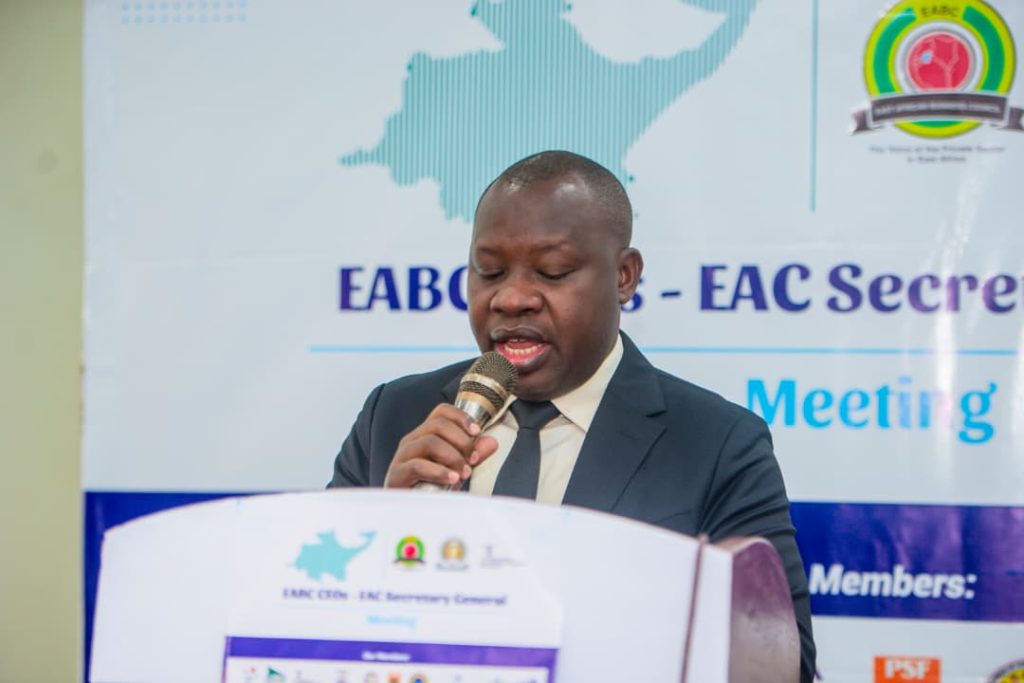 In his remarks, Mr. Juvenal Sakubu, Chairman of the Burundi Manufacturers Association (AIB), emphasized the importance of industrialization in driving economic growth and stated that the dialogue comes at the right time as AIB is currently hosting the five-day Industrial Fair of Burundi.
In his remarks, Mr. Juvenal Sakubu, Chairman of the Burundi Manufacturers Association (AIB), emphasized the importance of industrialization in driving economic growth and stated that the dialogue comes at the right time as AIB is currently hosting the five-day Industrial Fair of Burundi.
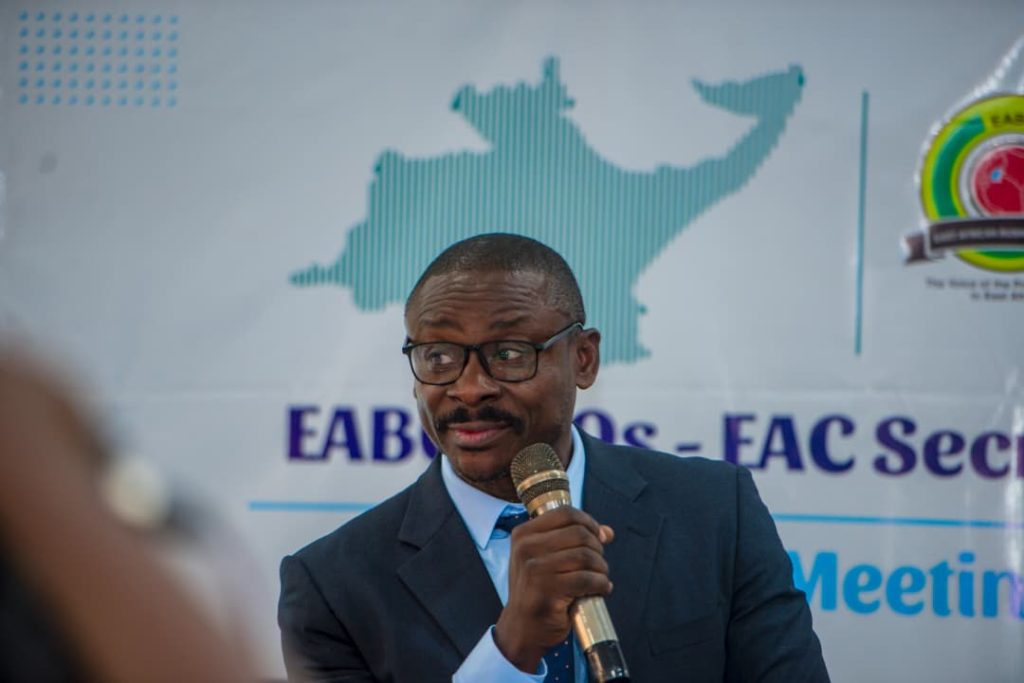 “The latest EAC trade statistics show impressive progress—total trade grew by 28.4% to USD 38.2 billion, exports rose by 40.5%, and intra-EAC trade increased by 24.5% in the second quarter of 2025. Yet intra-EAC trade stillstands at only about 12% of total trade, underscoring the urgent need for stronger government–private sector collaboration to remove bottlenecks and fully unlock the region’s integration potential,” said Mr. Adrian Raphael Njau, Executive Director, EABC. He urged Governments to fully implement commitments already made under the Customs Union and Common Market Protocols to boost intra-EAC trade to 40% by 2030.
“The latest EAC trade statistics show impressive progress—total trade grew by 28.4% to USD 38.2 billion, exports rose by 40.5%, and intra-EAC trade increased by 24.5% in the second quarter of 2025. Yet intra-EAC trade stillstands at only about 12% of total trade, underscoring the urgent need for stronger government–private sector collaboration to remove bottlenecks and fully unlock the region’s integration potential,” said Mr. Adrian Raphael Njau, Executive Director, EABC. He urged Governments to fully implement commitments already made under the Customs Union and Common Market Protocols to boost intra-EAC trade to 40% by 2030.
The panel sessions highlighted key investment opportunities in Burundi, including tourism, mining, infrastructure Public-Private Partnerships (PPPs), ICT, the digital economy, business services, and financial services.
 To strengthen manufacturing, the panel recommended addressing energy and foreign currency availability, completing major logistics projects along the Northern, Central, and Southern Corridors, and improving overall infrastructure. They also emphasized the need for greater stakeholder engagement, removal of remaining technical and non-tariff barriers, harmonization of EAC investment and fiscal policies, and educational reforms to better align workforce skills with sector needs. Service providers highlighted the importance of removing restrictions on service trade, fully implementing existing commitments, eliminating domestic regulatory hurdles, and improving data collection.
To strengthen manufacturing, the panel recommended addressing energy and foreign currency availability, completing major logistics projects along the Northern, Central, and Southern Corridors, and improving overall infrastructure. They also emphasized the need for greater stakeholder engagement, removal of remaining technical and non-tariff barriers, harmonization of EAC investment and fiscal policies, and educational reforms to better align workforce skills with sector needs. Service providers highlighted the importance of removing restrictions on service trade, fully implementing existing commitments, eliminating domestic regulatory hurdles, and improving data collection.
Tourism leaders called for action to address skills gaps, high air transport costs, licensing frameworks, marketing strategies, a catalogue of EAC tourism circuits and branding, adoption of the EAC Single Tourist Visa, promotion of sustainable tourism, a tourism data repository, and access to finance for SMEs.
Customs and transit agencies identified challenges in transport and logistics, including fragmented regulations, inconsistent border procedures, delays in cargo clearance, redundant scanning, and limited digital integration. Recommended solutions included harmonizing regulations, work hours, and cross-border permits; fully implementing the Single Customs Window and digital systems; adopting risk-based cargo screening; promoting multimodal transport; and standardizing skills for drivers, brokers, and clearing agents through continuous training.
The panelists included Mr. Roger Ngabirano (Burundi Development Agency), Ms. Linda Kaneza (Savonor), Mr. Jean Nicaise Bigirimana (Groupe EIS-EKA), Mr. Elliot Njejimana (Chamber of Service Providers), Mr. Edouard Bagumako (Burundi Green Destinations), and Mr. Athanase Hashimwe (ABADT).
Ms. Annette Ssemuwemba Mutaawe, Deputy Secretary General for Customs, Trade, and Monetary Affairs, explained that the EAC is developing the Buyer and Seller Online Portal to showcase products made in the region and boost e-commerce.
The EABC CEOs – EAC Secretary General Meeting convened key senior officials, including Hon. Members of the East African Legislative Assembly, who called for the operationalization of the EAC Trade Remedies Committee, and the Permanent Secretary, Ministry of Foreign Affairs, Regional Integration and Development Cooperation. The meeting also brought together over 90 business leaders from Burundi, who presented trade bottlenecks and proposed policy solutions to enhance intra- and extra-EAC trade and investment.
Other key policy proposals include promoting intermodal transport connectivity, strengthening cross-border financial infrastructure through interoperable payment and settlement systems, including national switch integration to reduce transaction costs, and implementing targeted programs to support women and youth in trade. Additionally, they recommended promoting Kiswahili and French to facilitate regional trade, encouraging the private sector to proactively report non-tariff barriers (NTBs), and leveraging opportunities under the African Continental Free Trade Area (AfCFTA).

